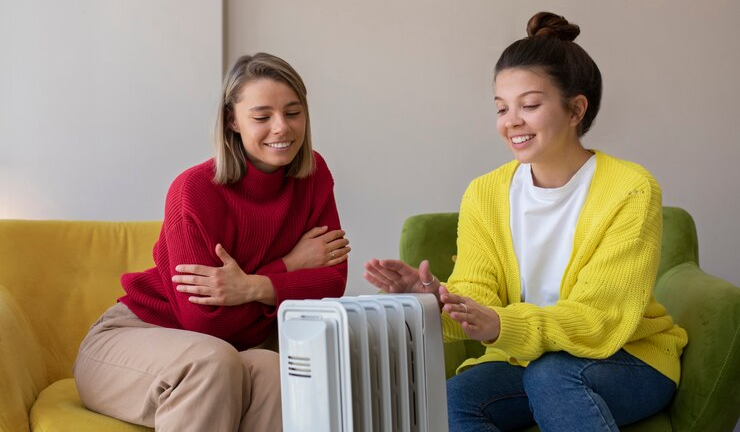Energy optimization is the process of maximizing energy use in your home environment. Energy consumption fluctuates as the temperature changes. Two main systems, air conditioning, and heating, are often the biggest culprits of high energy bills.
These systems play a vital role in keeping your home comfortable. So, with a few strategic adjustments, you can maximize their efficiency. This will save you money and maintain a comfortable living environment.
Let’s explore some practical tips to optimize your HVAC systems.
Ways to Maximizing the Energy Efficiency of Your Air Conditioning
Increase Thermostat Temperature
In the winter, adjusting your thermostat by 5 to 8 degrees may boost the efficiency of your air conditioner. Alter it upward in summer to see comparable advantages (using a ceiling fan can significantly reduce the temperature even when raised).
Upgrading to a programmable thermostat can be beneficial as it can automatically set temperatures for specific times of the day and be controlled from your smartphone.
Cover Your Windows
Pull your curtains or close the blinds to reduce the day’s heat. This is extremely beneficial if you want to increase the efficiency of your system. By covering your windows, you can lower the overall quantity of heat entering your home. This helps prevent your system from working excessively.
So, it’s a good idea to close your curtains and shades when you go to work in the morning. This can help maintain a cool home during the day. You can open them when you come home and enjoy the late afternoon sun. This ensures that you don’t need to compromise on your indoor comfort.
Give Your Residential Air Conditioning System a Professional Tune-up
An air conditioning unit is a machine composed of moving parts and compressed gas. If left inactive throughout the winter, certain components can seize up over time, impacting the unit’s performance once it is started in the summer.
So, getting a professional for Residential Air Conditioning System Repair is always a good idea for a thorough tune-up.
Additionally, it is advisable to keep the outside unit (condenser) free from debris and, if possible, in the shade.
Ways to Maximizing the Energy Efficiency of Your Heating System
Upgrade Insulation of Walls and Ceilings
Poorly insulated walls and ceilings contribute to winter heat loss and summer heat overload. And you don’t give them the significance they deserve because you take it for granted that they play a crucial role in protecting you from the weather.
But it is very easy to find homes with inadequate insulation. For this reason, you should use the following recommended materials:
- Walls should be rigid foam panels, fiberglass, or blown-in cellulose.
- Mineral wool or spray foam are effective for ceilings due to their high R-value and excellent sealing properties for air leaks.
- Additionally, you should focus on the R-value. The R-value evaluates the insulation material’s resistance to heat flow. When the R-value is higher, the insulation’s performance is enhanced.
That’s why choosing insulation with the right R-value for your climate and building type is essential to maximizing efficiency.
Schedule a Regular Boiler Service with Your Heating Contractor
Regular boiler service is vital for ensuring the optimal performance of your heating system. Schedule annual maintenance with a heating contractor to clean, inspect, and tune up your heating system. This can help detect and address any potential issues early on. It also ensures that your system runs efficiently and lowers energy waste and the chance of a boiler repair.

